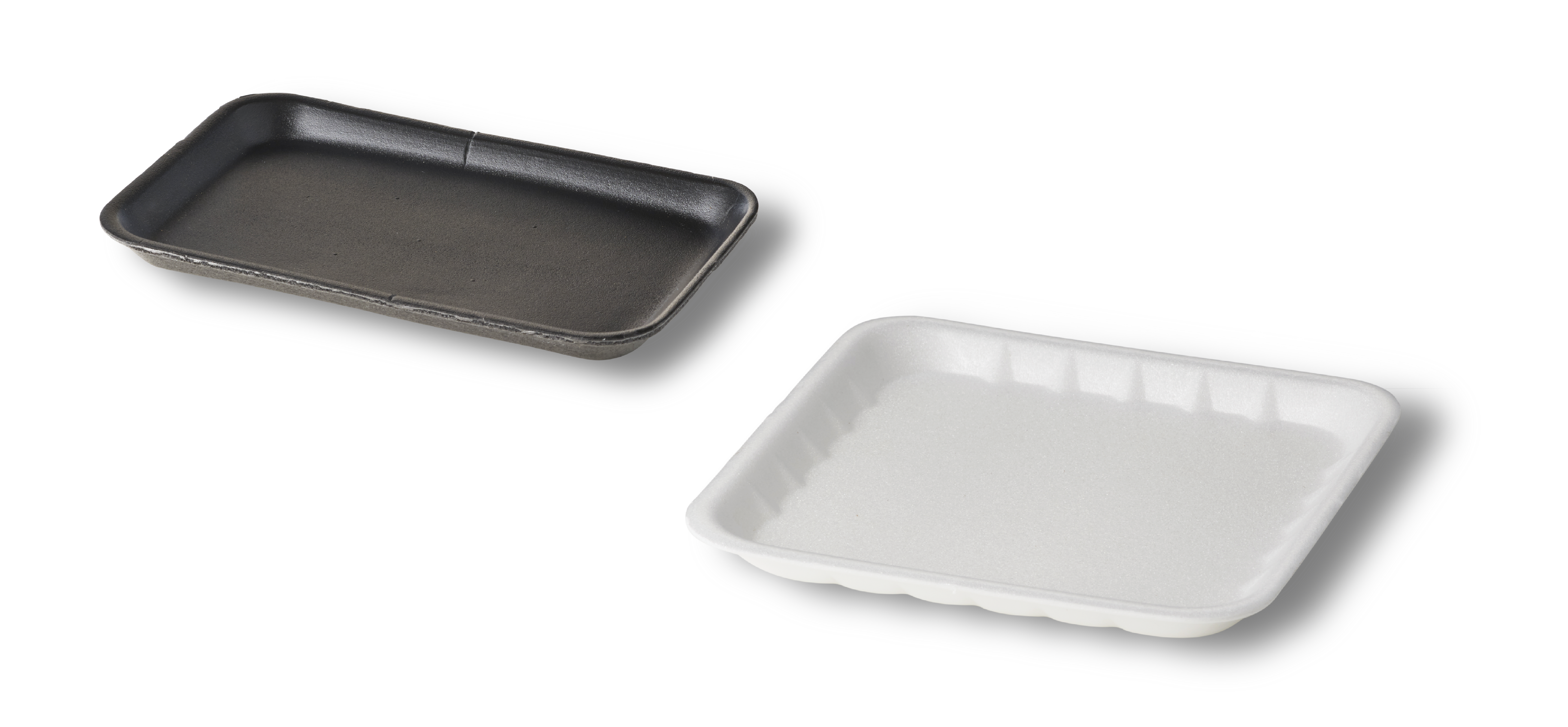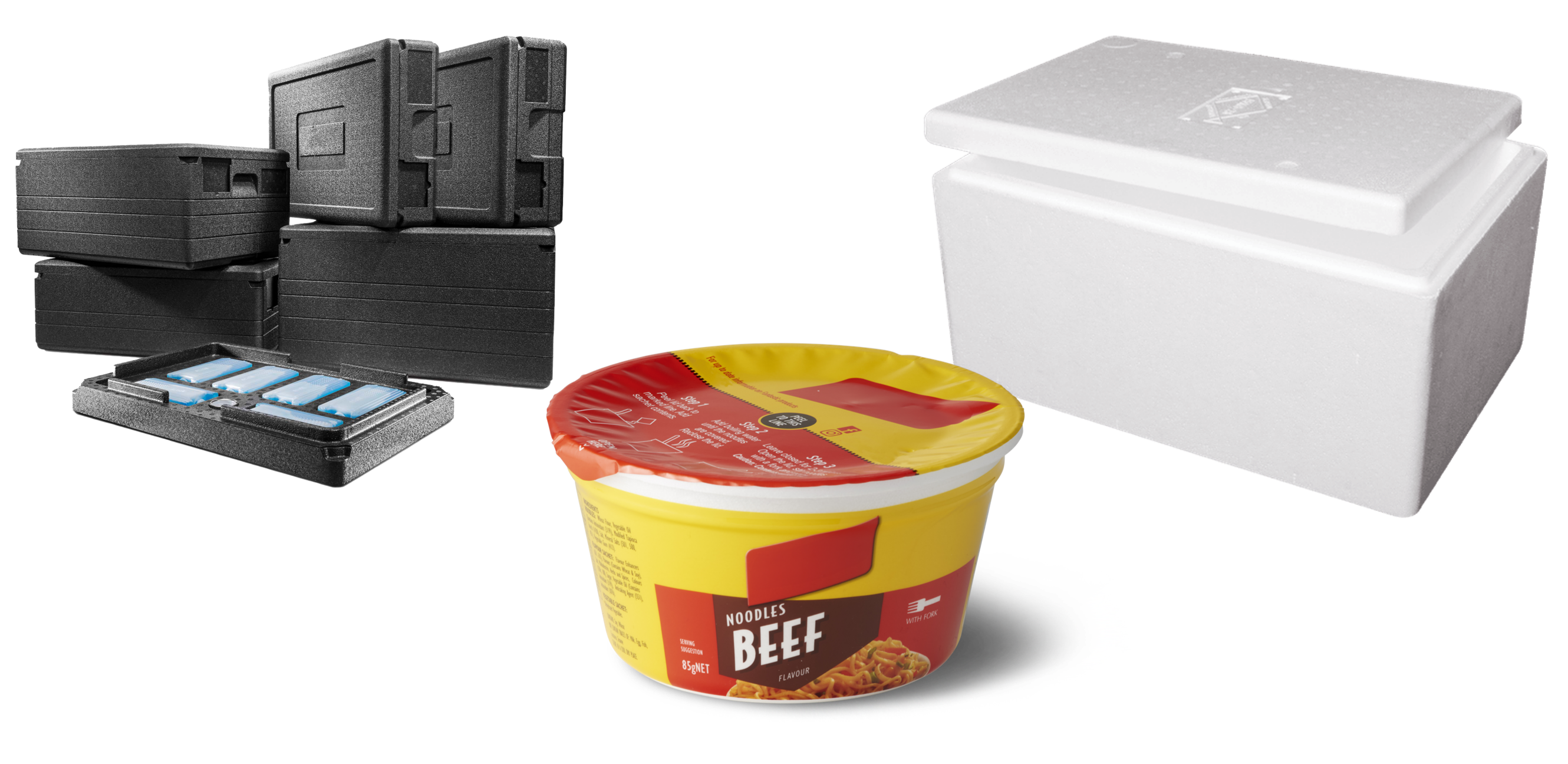The following guide provides information about the ban on certain expanded polystyrene (EPS) consumer food and beverage containers and EPS food trays.
What is banned?
EPS cups, bowls, plates and clamshell containers have already been prohibited from sale, supply and distribution in South Australia since 1 March 2022.
Other EPS consumer food and beverage containers and EPS food trays in the market were banned from 1 September 2024, including:
- EPS containers used for food items except ice cream, gelati, frozen yoghurt and other similar frozen desserts
- EPS trays used for meat, fruit and other food items.
Feedback from local businesses and suppliers indicated that there are currently no cost-effective alternative products in the market that are suitably insulated for transportation and delivery of ice cream, gelati, frozen yoghurt or other similar frozen desserts that are packaged on premises. As a result, there is a temporary exemption in place:
Until 31 August 2029 for:
- an EPS food container that has an EPS lid (whether separate or attached to the container) that is used for the retail sale of ice cream, gelati, frozen yoghurt or other similar frozen dessert that is packaged on the retail premises at the request or order of a customer.

What won’t be banned?
- All business-to-business EPS packaging such as delivery of fresh vegetables from field to market, or delivery of meat or seafood from processor/market to retail premises
- EPS boxes for home delivery of fresh food and pre-prepared meals, where there is an opportunity for collection and reuse
- EPS boxes used for specialist packaging for medical applications such as organ transport or pharmaceuticals.
- Trays or containers made from unexpanded polystyrene.
- EPS containers that are part of a pre-packaged product (such as pre-packaged instant noodles). Pre-packaged EPS containers will be banned from 1 September 2025 (see the guide to the 2025 ban on single-use plastics)

What are the alternatives?
Trays used for meat, fruit and other food items (which are not ready-to-eat takeaway food) can be replaced with fully recyclable polyethylene terephthalate (PET) or polypropylene (PP) trays that can be rinsed and placed in yellow recycling bins in South Australia.
If the tray is being used for ready-to-eat takeaway food, it will need to meet the requirements for food containers outlined in the guide to ban on food containers.
Takeaway EPS gelato containers can be replaced by AS certified compostable food containers that can be placed in domestic green bins after use or with corrugated cardboard product lined with reflective coating that can be put into kerbside recycling. Businesses can also encourage customers to bring insulated bags or containers from home to transport their gelato or ice cream.
For assistance identifying compliant alternative food containers, Plastic Free Places have developed an online database. Note that the database is not an exhaustive list, and you are encouraged to conduct your own research and due diligence before any purchase.
Bring your own container
In July 2022, the South Australia Civil Liability Act 1936 was changed to remove liability from food businesses such as cafés, restaurants and supermarkets when packaging and selling food to a customer in their own container. This immunity extends to all employees selling the food.
This means there is better protection for businesses that choose to accept customers’ BYO containers. However, if a customer provides an unclean BYO reusable container, it is considered reasonable to refuse to fill the container.
It is important to note that businesses are still liable if the person selling the food was negligent and sold food that was knowingly unsafe to eat, or the food was subjected to a food recall at the time of sale.
For more information, visit the SA Health website.

